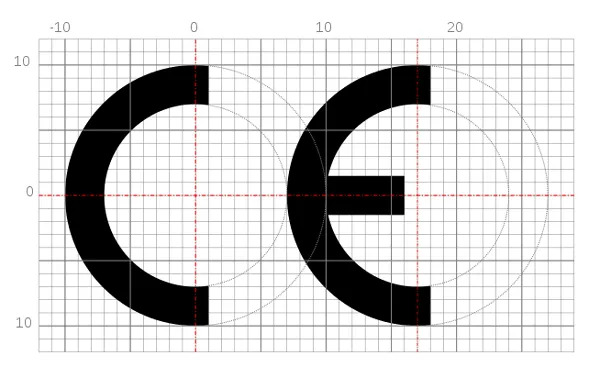CE marking
What you should know about CE certification
You see it often and yet rarely notice it: the CE mark on many products on European shelves. But what is actually behind it?
CE certification or CE marking means that the distributor of the marked product has declared “that the product complies with the applicable requirements set out in the Community harmonization legislation providing for its affixing”. In addition, this declaration must have been received by the notifying body and the respective product must have been provided with the CE mark and a four-digit identification number.
Below we explain what the CE mark itself means, which community it refers to,
which products require a CE mark and how to obtain one.
The CE mark and its meaning
The CE mark was introduced several decades ago by the European Community, which also gave it its name: "Communauté Européenne"(European Community). Nowadays, however, according to the European Committee for Electrotechnical Standardization (CENELEC), it actually stands for "Conformité Européenne" (European Conformity).
The CE mark is subject to strict design guidelines. It is only a valid CE mark if it is exactly as shown in the adjacent image.
Distributors of counterfeit CE markings or products with CE markings that do not meet the CE conformity requirements may be liable to prosecution.

False CE mark from China
There have often been cases of counterfeit CE marks on the European market, mainly from China, one of the EU’s largest trading partners. Counterfeits are not always easy to spot, but they can sometimes be recognized if you pay close attention to certain features:
- Are the two letters too close together or too far apart? If you draw the C into a perfect circle, it overlaps exactly with the E
- The middle line of the E must never be flush with the upper and lower ends
If there are deviations from these display rules, it must be assumed that the CE mark has been falsified.
So what does the CE mark mean?
A product bearing the genuine CE mark complies with all minimum safety standards in accordance with the CE standards applicable to the product type in question , as declared by the distributor. It is therefore not a seal of quality, but merely an indication that the safety standards applicable to the European market have been complied with.
A judgment of the Stendal Regional Court on 13.11.2008:
“… The CE mark is not a quality mark, but a kind of product passport. It does not indicate any particular safety or quality of the product, but simply represents a claim by the manufacturer.”
Although, strictly speaking, there is no independent test, the mark cannot be dispensed with if statutory regulations and standards require CE marking for the respective product type.
Which products are subject to CE marking?
Products subject to CE marking are usually articles from product types whose use can potentially pose a risk if the respective product does not comply with certain safety standards. Products from the following categories are therefore usually products that require CE marking:
- Medical products
- Machines
- Safety articles
- Toys
A product subject to mandatory labeling without CE marking may not legally be made available on the European market.
How do you get a valid CE marking?
To put it simply, a valid CE mark including identification number can be obtained in 4 steps:
- Researching relevant guidelines and checking compliance with them
- Identification of relevant standards for these directives and testing for conformity with them
- Preparation of a CE declaration of conformity
- Final verification of compliance with all specifications and labeling of the product.
Depending on the type of product, the process can be very extensive, as a large number of directives and standards may need to be observed.
We will be happy to advise you on CE conformity and support you through to the successful, legally compliant CE marking of your products.

Your contact at ED-Technik GmbH
Do you have any questions?
We are also happy to advise you personally by e-mail or telephone.
Martin Tillmann
Managing Director
Dipl.-Ing. Mechanical Engineering
DIN EN ISO / IEC 17024 certified expert for
CE conformity assessment and technical documentation
